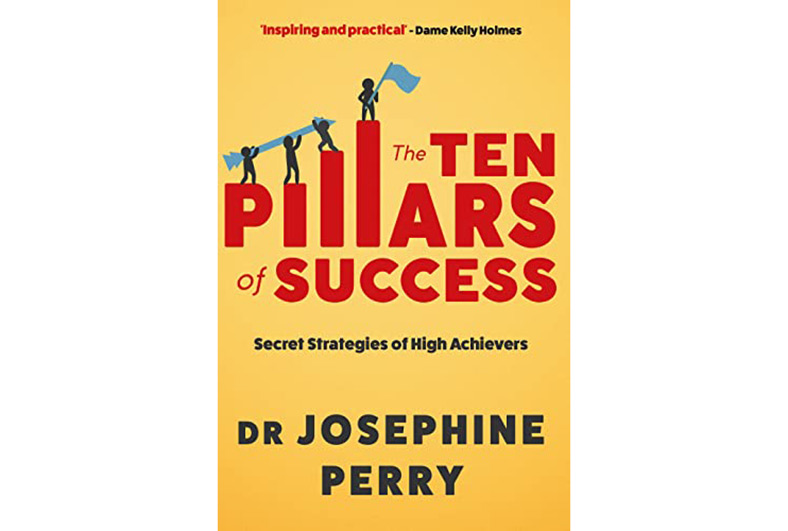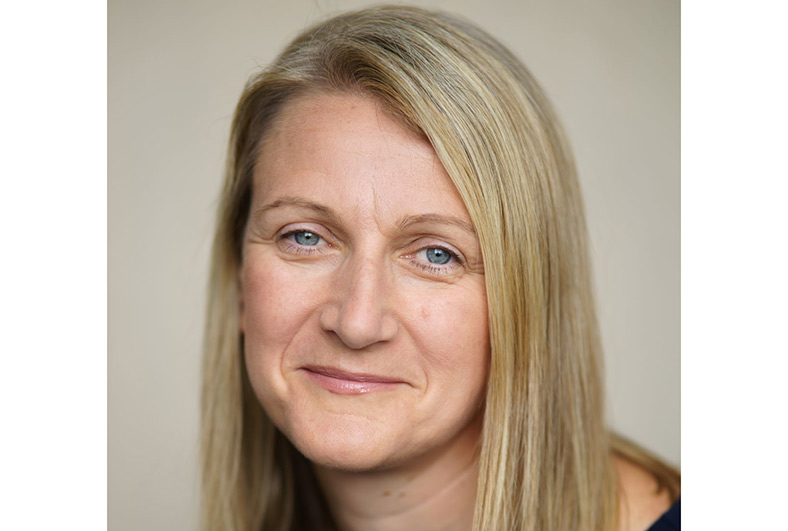Journalist as Author: Dr Josephine Perry, The Ten Pillars of Success

Sally Rooney, Taylor Swift, Serena Williams, Bill Gates and Michelle Obama all have something in common – no, it isn’t great hair! They have all been successful in their different fields.
While the people listed above have all ultimately achieved success, they haven’t all necessarily accomplished it in the same way. In her latest book The Ten Pillars of Success, freelance journalist Dr Josephine Perry investigates how these high achievers become so successful. We caught up with her to chat about the book as well as what skills transfer from sports psychology to journalism and what makes for a good relationship between journalists and PRs.

Can you introduce your book in a couple of sentences?
The 10 Pillars of Success profiles the ten psychological characteristics (belonging, purpose, mastery, autonomy, confidence, process, optimism, gratitude, courage and internal insight) that make our lives easier, happier and more successful. Each chapter covers a characteristic and shares the evidence of benefits it brings, interviews with well-known success stories (people like Dame Kelly Holmes, Maxine Peake and Sara Pascoe) who have used it as a super strength and finishes with activities, ideas and worksheets so you can grow more of that pillar for yourself.
Could you tell us about how you came to write The Ten Pillars of Success?
As a sport and performance psychologist, I regularly work with people who have achieved success; they have set sporting records, headlined major festivals or appeared in top TV shows. I was curious about what it was within their personalities that allowed them to do so well, and whether those traits were ones we were born with or could learn to develop. The ten pillars in the book are all ones we can develop if we proactively work on them.
The idea was buzzing away in my head and then, when lockdown came and I got some headspace to think about it, I approached Audible to see if they would be interested. It felt perfect for Audible because I wanted it to be a great mixture of self-help book and inspirational interviews – and if we could do it as an audiobook the interviews could be recorded and the actual voices incorporated. Audible said yes and after 15 months of researching, writing and recording it came out last August. They own the content for a year and then offer it back to the author to bring out in print. Allen and Unwin offered to publish it and an adapted version (lots of activities and worksheets have been added in) comes out in print on 25 August.
What skills are you able to apply from your work as a chartered sports psychologist to your work in journalism?
There are lots of transferable skills from psychology to journalism; listening, summarising, asking the right questions, compassion, being able to see the bigger picture, connecting lots of small elements into a bigger story and being able to identify a narrative, but I regularly find myself reflecting on the ethical element of using these skills. As psychologists our role is to be entirely non judgemental and offer people a safe place to work through their thoughts, beliefs and behaviours. If we use these skills as journalists we may get far more information from someone than they actually wanted to give. This is a great way to get a good story but could be harmful to the interviewee. I have given myself lots of barriers when I write so that I do not feel I ever put an interviewee in harm’s way. It means I may not always do the best job as a journalist but I do live up to my values as a psychologist which is most important to me.
Are you working on another book, or do you have other projects under way?
I’ve actually already written another book with a friend, Lexie Williamson. It is called Power Down to Power Up and covers 31 techniques to help you recover from stress, anxiety and burnout. Lexie is a Yoga teacher so between the two of us we have techniques to cover Settle, Ground, Focus, Perform, Reflect and Sleep. As the book is an Audiobook you can just listen to our instructions and join in. It came out on Audible in March.
What books are you reading right now, or about to pick up?
I am in the middle of three books at the moment. For running, I always have an audiobook on the go, usually one of KL Slater’s. I have a review section on my website (performanceinmind.co.uk) of books that I would recommend for those wanting to achieve high performance and for this I’m currently reading Lucy Nichol’s book Parklife as it covers addiction which can be an issue for some high performers. For pure fun, I’m reading Elizabeth Day’s Magpie. It is so, so good.
You have worked in both journalism and PR during your career, where do you think the relationship works well? And what do you feel needs to be improved still?
I began in journalism (on the International News Desk for CBS News), moved over into PR (my first role was with Hill & Knowlton on the Kelloggs press office – and I still have a soft spot for Tony the Tigger after drafting many press releases on his behalf) and then corporate comms. When I left PR in 2013 to retrain as a psychologist I found I loved using journalism again to explore psychological concepts and ideas. It is a brilliant way to examine new areas and I’ll regularly take stories that I’ve worked on as a journalist into client work as great examples to learn from.
I find the interaction between PRs and journalists fascinating – so much so it was the subject of my PhD. But everything I studied for my PhD feels so out of date as I wrote it before social media really kicked off. Journalists used to feel much more like gatekeepers (literally known as the fourth estate) and so their engagement was essential to PRs. Social media has changed the landscape so much and it feels anyone can claim to be a journalist, channels are far less defined and great PRs have their own channels.
Still, where it works best though is where there is great communication, connection and respect. The more people work together to resolve an issue, raise a problem or find a solution, the better we can make life. Journalists and PRs working together can amplify their power and use it to do some brilliant things.
Are there any examples of your everyday journalism that you’re especially proud of or would just like to share?
I’ve written a lot of features for Cycling Weekly over the years and I really love the opportunity to feature real, everyday cyclists who are doing things we can all learn from. The professionals get coverage for their results but I find it fascinating to create case studies of those whose stories we would never usually hear. I really love the enthusiasm and excitement from those people we feature when they realise others are interested in their adventures and their story and I love hearing from readers who can see through our features what it possible and build their own opportunities.
If I’m a PR professional with a story or another opportunity for you, how should I get in touch?
I love getting story ideas or great case studies. I’m always looking for interesting things happening in sport, high performance or psychology. Any books on high performance or those written by athletes are great to receive for my website review section. I’m at josie@performanceinmind.co.uk or tweeting (far too much) @josephineperry.

